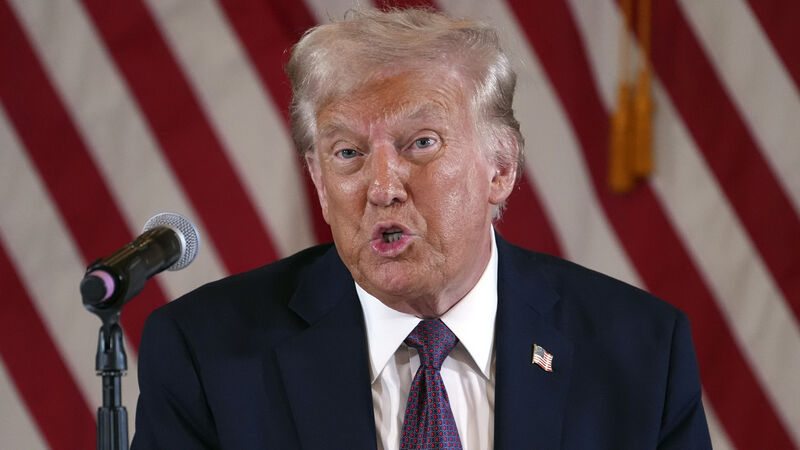Irish Examiner view: Is Donald Trump above the law?

One of the most significant stories about Donald Trump broke this week, based on investigations into whether Mr Trump tried to overturn the result of the 2020 presidential election illegally. Picture: Evan Vucci/AP
One of the most significant stories about Mr Trump broke this week, however, thanks to a report written by US Department of Justice special counsel Jack Smith. The report is based on investigations into whether Mr Trump tried to overturn the result of the 2020 presidential election illegally.
















